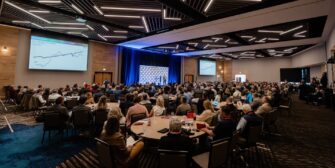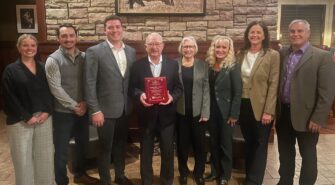3 Family Businesses Honored with Awards from Prairie Family Business Association
Recent News
By Kent Rhodes, Ed.U. and Kristi Daeda
Carl is a robust, energetic man in his early 70s with a booming voice and raucous laugh. For the last 40 years, he’s led the company that his father founded through steady organic expansion, reaching into new regions, building new facilities, and growing the family’s brand. Carl and his wife Melinda have dedicated their lives to the business and are proud of what they’ve built. They plan to pass it on to their three children, now in their 30s and 40s, who followed their father into the business. The siblings are starting to ask questions about the future, especially around Carl’s personal plans, his vision for their contribution after his retirement and what they need to be doing to prepare themselves.
Carl’s own father died suddenly and relatively young, leaving him to step in and figure out how to fill his father’s shoes at the ripe old age of 32. Carl doesn’t want to leave his own children in the lurch, but feels too young and engaged in the business to begin to contemplate his exit. “Besides,” he tells himself, “the kids still have a way to go before they’re ready to take over.” But all three children grew up hearing stories from both their parents about the difficult challenges their father faced when he had to suddenly step in to lead the company. They have no desire to repeat history.
To Carl, their questions feel like pressure and he wonders if they are showing signs of entitlement. “What’s your hurry?” he thinks. “You have a long way to go before you are ready.”
Why Some Leaders Avoid Planning for Succession
Carl understands better than most the risk of continuing without a succession plan, yet he alternates between not wanting to “open that can of worms” and not knowing where to start. Leaders like Carl often cite day-to-day business obligations as being badly timed with any potential succession planning efforts, yet time may be the easiest obstacle to overcome.
Sometimes the real hurdle is simply a sense of the task being too complex. This often shows up in three common themes:
Readiness of Successors
As a business grows, its leadership needs change. The leading generation often sees a business that is much more complex and challenging than when they took the reins, and wonder whether the next generation will be able to step into ever-bigger shoes successfully. Conversely, the next generation questions how they can be better prepared for the future without a solid plan in place that ensures it. What will it take for their parents to feel comfortable enough to give them more experience and responsibility in the enterprise?
Family Expectations
All family members, both leading generation and next generation, bring some expectations to the table such as ideas about how the next generation will engage in the business. These include whether career paths will be offered, how those paths will be nurtured, who might be a future enterprise leader, under what terms ownership will be available, and so on. Many leaders avoid these kinds of conversations because they sense a mismatch in expectations that could be uncomfortable for all involved. Some even use their own discomfort as an excuse that the next generation “isn’t ready to lead.”
The Leader’s Personal Vision
Beyond planning for the future of the business, family business leaders also must contemplate their own future after succession. But sometimes, envisioning the impact of a well-executed succession plan on what the leader generation wants in “retirement” is easier said than done. Founders may find this personal aspect of succession planning to be particularly challenging, but any leader will feel resistance around planning for their own exit unless they have a compelling vision of their life beyond their current role.
Read the rest of this article here.
Kent Rhodes and Kristi Daeda are with The Family Business Consulting Group, Inc., a leading management consulting firm serving the unique needs of multi-generational family businesses worldwide. This article originally appeared in The Family Business Advisor Newsletter here.



